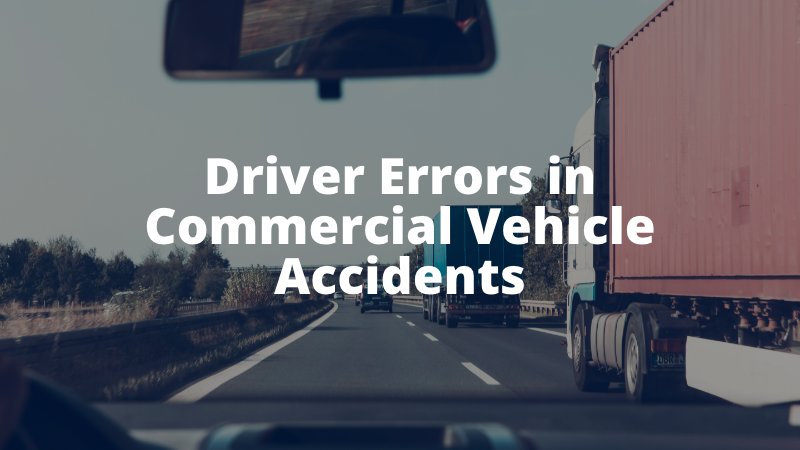Common Driver Errors in Commercial Vehicle Collisions
Every year approximately 5,000 large trucks are involved in fatal crashes, according to the National Safety Council. Large trucks accounted for 9% of all vehicles involved in fatal crashes in 2020. Additionally, nearly 400,000 truck accidents occur each year. While the trucking company, cargo loading company, or another third party may sometimes be at fault, many truck accidents are due to truck driver errors. The truck accident lawyers of Mingo & Yankala, S.C. can help show how truck driver error caused your accident. Call us today at 414-273-7400 to learn more.

Speeding
The trucking industry incentivizes drivers to make deliveries quickly. Many drivers are paid by the load or the mile, so they often make more money if they can log more miles in a given day. This can motivate drivers to speed so they can make their deliveries faster. However, speeding is dangerous because it will make it take longer for the truck to come to a complete stop once the driver recognizes a danger. If an accident does occur, injuries are more likely to be serious because the force of impact will be greater.
Failure to Inspect Vehicle
Drivers have a responsibility to complete a multi-point DOT inspection before starting a trip. Long-haul truckers must often complete similar inspections as they go through different phases of the haul. During these inspections, truck drivers visually inspect various aspects of the truck that could pose a danger if not properly maintained, such as:
- Brakes
- Tires
- Fluid levels
- Steering system
- Transmission system
- Suspension system
- Trailer
- Lights
- Gauges
Some truck drivers may skip these mandatory inspections in the interest of saving time.
Fatigued Driving
Commercial trucks account for about 10% of the total vehicle miles traveled. Driving a truck for so many hours can make drivers sleepy. Truck drivers are required to follow hours of service rules to prevent accidents caused by fatigued driving. However, even these rules allow truck drivers to operate a truck for a substantial amount of time before taking a break. Tired drivers simulate behaviors of drunk drivers, putting motorists at risk.
Bad Turns
Commercial vehicles are more difficult to handle than passenger vehicles. Drivers must often make wide turns. Inexperienced drivers may underestimate the space they need and crash into vehicles in adjacent lanes. Truck drivers can also overcompensate for a wide turn and end up in the wrong lane of travel.
Distracted Driving
Truck drivers may try to multitask while driving. While handling a vehicle that can weigh up to 80,000 pounds, truck drivers might also be:
- Trying to use a navigation system
- Talking to logistics coordinators
- Inputting data into electronic logs
- Talking over the radio
- Adjusting infotainment systems
- Talking on a cell phone
- Texting on a cell phone
- Eating or drinking
- Looking at a map
Driving Under the Influence
Some truck drivers turn to stimulants to help them stay awake during long shifts. Others have problems with alcohol or are addicted to prescription medications. Truck drivers who operate a truck under the influence of alcohol or drugs put other motorists at risk. Truck drivers are required to take drug and alcohol tests after being involved in an accident, but some may skip them to try to hide they were under the influence at the time of the accident.
If you were injured in a truck accident, reach out to Mingo & Yankala, S.C. for help by using the online contact form or calling 414-273-7400.
